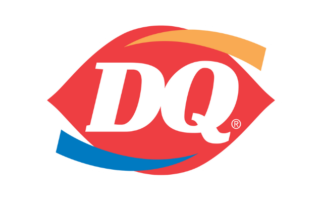The wholesale electricity market plays an important role in powering homes and businesses throughout the country. Yet, when many people flick the light switch, they do not realize the intricacies of the wholesale power market and the critical infrastructure required to ensure the reliable supply of electricity. Read on to learn more about how these markets are structured and what they mean to your home or business.
What Is The Wholesale Electricity Market?
The wholesale electricity market is a critical component of the overall energy landscape. It refers to the buying and selling of power between generators and resellers. Let’s explore the differences between retail and wholesale power markets in more detail.
Retail vs. Wholesale Electricity
The electricity markets in the U.S. are generally divided into retail markets and wholesale power markets, although the two are quite intertwined.
Wholesale electricity markets generally refer to power generators, transmission network operators, and financial markets that set the price for wholesale electricity.
Retail energy markets, on the other hand, are comprised of retail electricity providers and utilities that serve the ultimate end user. The retail markets are unable to exist without the wholesale markets as they are different ends of the supply chain.
Wholesale Electricity & Energy Deregulation
As deregulation has swept across the country, wholesale electric markets have become increasingly important in providing a mechanism for retailers to procure electricity. This is especially true in states that have opened up their retail energy markets to competition. Retailers can now purchase power at wholesale prices and pass those savings on to consumers.
The wholesale electricity market is constantly evolving, with new players and energy supply products entering the space. It’s important for consumers to understand how this market works and the role it plays in their energy choices.
Types Of Wholesale Electricity Markets
Generally speaking, there are two different types of wholesale electric markets:
- physical markets
- financial markets
Physical Electricity Markets
Physical electricity markets refer to the components that make up the physical generation and transmission of actual electrons. Because electricity is a commodity that is consumed, it has a physical price that is tied to supply and demand market dynamics.
Financial Electricity Markets
On the other hand, financial electricity markets are comprised of financial institutions, brokerage firms, and traders that set the future price of electricity in a financial sense. These markets are just as important to the overall power industry as the physical markets as they allow utilities and customers to purchase electricity in advance of its production at predetermined prices. This future purchase, also known as a futures contract, plays a critical role in stabilizing market prices and consumer budgets.
How Does The Wholesale Energy Market Work?
There are several different types of participants in the wholesale energy markets. In order to fully understand how these markets work, we must first understand each wholesale market participant’s role.
Power Generation
Electricity is generated through coal, nuclear, natural gas, wind, solar and other generation sources.
Transmission Grid
High-powered transmissions lines (“the grid”) carry electricity from the power plant to the local utilities.
Utilities & Suppliers
Utility companies and electric suppliers purchase power from the wholesale markets and resell it to end-users.
Customers
Electricity is then delivered and purchased by end-users for use in factories, restaurants, gyms, and homes.
Electricity Generation
Electricity generation is the process of producing electricity and is commonly expressed in kilowatt-hours (kWh) or megawatt-hours (MWh). Electricity generation is the first step in the electric power supply chain. The most common forms of electrical generation are natural gas, coal, nuclear, hydro, wind, solar, and biomass. Electricity generators are licensed entities that produce electricity to be consumed further down the supply chain.
Electricity Transmission
Electricity transmission owners transport electricity at a very high voltage from the electricity generation plants to the electric utility companies. In many deregulated states transmission lines are privately owned. In regulated states, transmission lines are often owned by public utility companies. Transmission is the second step of the power supply chain, and these market participants ensure the safe and reliable supply of electricity throughout the country.
Electricity Grid Operators
Next, electric grid operators manage the distribution of electricity over the transmission network. These operators continually monitor electricity supply and demand to ensure that it is in balance. They dispatch electrical generation and feed it onto different parts of the transmission grid in order to meet consumer demand. We will learn later on how electric grid operators set the wholesale price for power.
Utilities
Electric utilities are public companies responsible for delivering power over locally-owned utility lines to end-use consumers. In regulated states, electric utilities often own generation plants and transmission lines. In deregulated states, electric utilities are simply involved in the local delivery of power and customer billing. Electric utilities play an integral role in the power markets by ensuring safe, local delivery of electricity.
Retail Energy Suppliers
Although more of a retail market participant, in deregulated energy states, retail energy providers purchase electricity from the wholesale market and resell it to their end-use consumers. In these states, retail energy providers do not own transmission lines or local delivery lines. They are simply involved in the financial transaction of the sale of energy. In some cases, retail energy suppliers might also own generation plants.
Energy brokers also exist in the retail markets by helping customers negotiate the purchase of electricity or natural gas with retail suppliers.
How The Wholesale Cost Of Electricity Is Determined
As we mentioned above, electricity grid operators are responsible for maintaining the electrical transmission network and ensuring that power supply and consumer demand are constantly in balance.
Power grid operators also help to determine the wholesale cost of electricity through this process. In fact, grid operators are not concerned so much about the price of electricity, but rather about making sure there is enough power to meet consumer demand.
With that being said, grid operators are responsible for dispatching power from generators that will ensure demand is met. Sometimes, they are able to dispatch power from low-cost generation plants, but other times, they are forced to turn on high-cost power plants in order to quickly meet demand.
This fluctuation between different cost generations determines the hourly clearing price of electricity in most wholesale power markets. In fact, the price of the last generator used to meet demand for a given hour sets the wholesale price of power for that particular hour. And, because all things are treated equally in wholesale electric markets, all-electric generators are paid the same price per kilowatt produced each hour.
Wholesale Energy Price Components: Understanding Generation, Transmission, and Distribution Costs
Let’s explore how costs are calculated for wholesale electricity generation, transmission, and distribution. It’s important to note that we will be exploring traditional electric grid market dynamics. With the global energy economy experiencing an energy transition to renewables, some of these market rules will not apply to distributed energy resources or community solar installations.
Electric Generation Costs
In most wholesale electricity markets, electric generation companies are paid the same rate for each unit of energy they generate. This might seem like a socialistic concept, however, the free market determines the price for electricity. As stated earlier, generators place bids into grid operators for their prices to meet electric demand for each given hour of the day. These bids are arranged in ascending order from lowest to highest, and the last generator needed to meet demand for the hour sets the price for which all generators are paid.
Retail customers typically do not see these market dynamics as they occur behind the scenes. Although retail electricity suppliers are obligated to pay the hourly price for electricity to these generation companies, there are other financial tools used so that the retail customer sees a simple price per kilowatt hour on their electric bill.
In the energy industry, generation is the cost for the physical electric commodity and can sometimes be referred to as simply just “energy cost”.
Electric Transmission Costs
Transmission costs are structured in a completely different way than the energy market. Transmission fees are paid to electrical transmission owners so that electricity can be moved from the generation plants to local utility companies in each region of the county. Transmission owners make large capital investments into building new transmission lines, so FERC allows them to earn a fixed rate of return on their capital. This fixed rate of return is what sets the price for electric transmission. And, because transmission lines span across the entire country through multiple utility footprints, these rates are set at the utility territory level.
Another wholesale energy transmission cost component that is often overlooked is the financial transmission rights contract or FTR. These contracts are purchased in the wholesale market by retail electric providers and energy traders for speculation. They allow the FTR owner to claim the right to a transmission pathway at a certain price to hedge future risks against energy congestion charges. In a fully bundled fixed energy rate, the end user often pays for these FTR premiums as a part of the final energy rate.
Electrical Distribution Costs
Although electrical distribution costs are not technically considered part of the wholesale market, they still play a significant role in shaping consumer energy expenses. Energy distribution fees in the commercial sector are calculated as a unit of energy demand and are typically billed in $ per kilowatt (kW). Each utility company throughout the United States publishes rate tariffs for each class of customer (residential, small commercial, large commercial, industrial, etc.). These tariff calculations are what set the total cost for electrical distribution for the customer.
It is important to note that commercial customers have the option to choose their tariff schedule, providing that their business energy consumption meets certain requirements. There could be significant savings by switching to a lower-cost tariff. Performing a utility bill audit is a great way to determine if your current tariff is the most cost-effective way to pay for electric distribution.
The Benefits Of Wholesale Electric Markets
The major benefit of wholesale electric markets for consumers is that they have helped facilitate the deregulation of energy in the U.S. When studying the history of energy deregulation, you will learn that the formation of the wholesale markets came first before states were able to allow retail choice.
Another key benefit of the wholesale markets is the formation of financial futures markets. This allows consumers the ability to lock in fixed power prices for many years into the future without having to risk paying the price of the index electricity market. For some customers, this can mean the difference between profitability and losses. In other cases, this helps organizations to be more stable as they are able to budget energy costs.
Who Can Buy Wholesale Electricity?
For the most part, the purchase of wholesale electricity is reserved for retail electric suppliers, utilities, and energy traders. In fact, in most deregulated energy states, an entity must have a license, post financial collateral, or be considered a load-serving entity (LSE) in order to purchase wholesale power or participate in the wholesale futures markets.
There are, however, certain circumstances where large consumers of power are able to register in the wholesale markets and purchase wholesale electricity directly from the electric grid. Some retail energy suppliers are even offering programs to large customers to facilitate these transactions.
How To Buy Wholesale Electricity
If you are a large consumer of power and you are interested in buying wholesale electricity for your business or organization, you have two options.
Retail Supplier Products
Although not a true wholesale product, many retail suppliers have programs in place that allow large customers to utilize their licenses in order to gain access to the wholesale electricity markets. Some suppliers offer hybrid energy products too, such as block + index, power products that mimic wholesale prices.
Register As A Load Serving Entity
The only true way to purchase wholesale electricity as an end user is to register as a load-serving entity with the electric grid. Becoming an LSE is the same process that retail electricity suppliers go through in order to access the wholesale markets. Consumers that become LSEs are, in essence, becoming electric suppliers in order to supply themselves.
This is a large undertaking and requires a lot of financial investment and energy market knowledge. However, some of the largest consumers of power in the country are LSEs and are able to pay wholesale for electricity.
Want To Explore Wholesale Electricity For Your Business?
In conclusion, wholesale electricity is complex and involves many different participants. Understanding how these markets work in conjunction with retail energy is critical for controlling energy costs at your business. If you are looking to explore wholesale electric options for your business, contact our team of energy market experts today!





